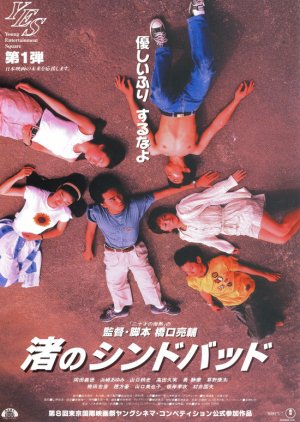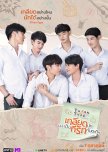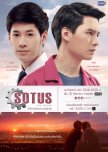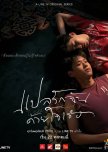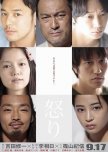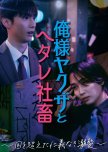
a masculine sensitivity.
It was Hashiguchi Ryosuke's birthday recently and it reminded me I hadn't seen one of his films before. Given he's a noteworthy filmmaker in modern Japanese queer cinema, I thought I would fix that.Hisaguchi’s preference for long arduous shots often leaves his characters bare naked in scenes—their every motion captured raw for potentially masochistic viewers. It’s awkward, but so is being a teenager, and it’s in this way that the movie really goes for the jugular. These characters are incapable of truly being themselves—they either don’t know how to or are afraid to or both—and after a painful two-thirds of skirting around feelings, everything comes to head in the film’s stunning final act. It’s potentially some of the most captivating 30 minutes ever committed to screen, considering how hard it was to look away. Each shot finds ways to imprint itself more & more into the brain, until it's all taken away.
As an intimate exploration of sexuality—not in the physical, but in the emotional—Hisaguchi has crafted an almost surreal piece of escapism via self-actualization that still manages to resonate some 25 years later. It’s tender, brutal and honest, and kindly asks its audience to be the same. It's not for everybody, but it certainly was for me.
Considerați utilă această recenzie?

Această recenzie poate conține spoilere
Being queer is a choice?
This film is about teenagers finding themselves and maturing. We follow them throughout their journey, and I believe they all grew and became different people by the end of the film.I loved the cinematography, especially in the countryside setting. The OST is beautiful and could have been used more often throughout the movie. The script is also great.
I think the contents of the movie were well thought through, although the message in some scenes can be questioned. An example is the drowning scene at the end, where Ito told Yoshida that he could "kiss a boy if he tried", implying that being queer is a choice (which it most certainly is not).
Considerați utilă această recenzie?

Gay teenager in 1990s Japan
This is not the usual school drama or movie we see these days. Usual school issues actually play little part in it (apart from one. instance touching on bullying). It starts as a realistic film of confused adolescent emotions in mainly school setting into which we are gradually introduced to a dark side of gender identity, sexual violence (Aihara, a female student transferred after being raped) and repression but especially the struggle for identity of a gay teenager, Ito, worked around his feelings for a classmate(Yoshida) in a still non-accepting society in the 1990s (though unhappily not so much changed 30 years later) an object of scorn by other students and his father( who still thinks he can be medically "cured" ), the movie climaxes (no pun intended) in a surreal meeting of the three on a beach in which the conventional boundaries are crossed this is a nuanced movie where the dark erotic instincts, feelings, motivations swirling in the protagonists are brought to the surface slowly but finally only in the dark isolation of a nocturnal seashore (the grains of sand) and yet still remain unresolved as they return to their habitual lives very good exploration of these difficult issues and must have been ground-breaking in 1990s Japan 〜Considerați utilă această recenzie?

Vintage bL
Menceritakan seorang siswa bernama Ito yang menyukai teman sekelasnya bernama Yoshida, Film ini fokus menceritakan tentang "apa yang akan terjadi ketika kamu seorang gay" - menurutku begitu. Dari segi detail, menurutku film ini kurang ya - ada beberapa part scene yang bahkan menurutku tidak selesai ; sebagai contoh seperti latar belakang Aihara, Kasus sepeda yang diceburkan ke sungai kota dan lain-lain, film ini hanya menunjukan scene orientasinya saja. Chemistry Ito sebagai seorang laki-laki yang menyukai laki-laki menurutku sudah cukup bagus tergambarkan ya ; apalagi di tahun 1995 sangat sedikit referensi film yang menggambarkan itu secara bagus, mungkin sang aktor haruslah sangat berlatih untuk itu. Karakter Yoshida yang punya scene yg terlalu sedikit dan Aihara yang terlalu banyak bersama Ito malah membuat film ini seperti series "pertemanan" antara Aihara dan Ito dibandingkan menceritakan hubungan Ito dan Yoshida ~ selain itu latar belakang Aihara dan Ito membuat mereka sangat cocok sebagai Fujo dan Fudan. Series ini seperti menampilkan cinta segitiga namun cenderung tanggung ~ tidak jelas siapa dengan siapa, menunjukan bentuk sikap "denial" tanpa resolusi yang jelas, detail cerita film ini menurutku benar-benar tidak mudah difahami. Dari segi warna dan cinematography, film ini kurang lebih mempunyai saturasi warna vintage khas tahun 2000an sebagai referensi film ini mirip dengan film "Eternal Summer" Taiwan yang diperankan oleh Ray Chang ; ya walaupun dari segi cerita menurutku ini berbeda. Dialog yang ada di film ini menurutku biasa aja ; bahkan terkadang menurutku tidak nyambung ke jalan cerita alias filler, dengan banyak sekali dialog di luar main-role yang membuat film ini seperti film dokumenter, seperti di buat se-real mungkin.Considerați utilă această recenzie?

